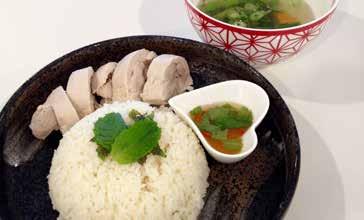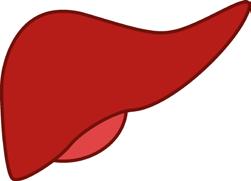
5 minute read
Millwater Asian Corner
32
millwaterasiancorner Chinese New Year
Advertisement
Chinese New Year, in terms of people’s behaviour, is very similar to Christmas in New Zealand; where parents have to work around the clock to get things done; kids are looking forward to receiving red packet money and business will be closed for weeks. It’s a festival time for getting the family together and celebrating the happiness of receiving a brand new year. Some people believe it’s the time when bad luck will go away and to wish something good will happen. That explains why, in the Chinese New Year time, people must greet others by wishing them “earn fortunes”, “good health”, “good business” – or, in a modern way, “may you look like 28 years old every year!”
The way people celebrate Chinese New Year will vary from family to family and the list would be endless if I go into details. Instead, I would like to share some funny experiences with you from when I was living in Hong Kong.
When I was a kid, on New Year’s Eve we had to walk around the park and yelling out “lazy bugs on sale! Who want lazy bugs...?” This is a tradition, hoping to get rid of the laziness in kids and hoping they will work harder in the next year. (Obviously, it wouldn’t work!) My brother and I, of course, were just doing it for fun; laughing was more important than anything. That night, we also have a pair of small tangerines (with leaves and stem) and a pair of red packets to put beside our pillow.
The first Chinese New Year after we married was a totally different story. We were “qualified” to hand out red packets, which means we needed to prepare enough notes for passing out packets. The rule is you should hand out a pair of red packets to whoever is younger (unmarried) than you and whom you meet in the first 15 days in Chinese New Year – so there is quite an amount of notes we needed to have prepared. The fact is, the amount of packet money given out to a close relative is certainly different to someone’s kid you just met. Unlike Christmas gifts, it is unusual to write a name on the packet. My solution was to prepare a few different styles of red packets, where each style only contains one value of note. On New Year’s Day, I put one style in my left pocket, one in right and maybe one in my bag, and so on – and then practice in my mind. For example: left is $10 (around NZ$2), right is $20 (around NZ$5), etc. However, the first year passing out the red packets was too overwhelming, as I always confused myself and ended up saying to my husband “Oh no, did I just give out a pair of $10 instead of $100?”. It could be really embarrassing to give out the wrong red packets, as it could be a real disaster!
In the photo are the traditional (small) and modern (long) red packet envelopes.
This year’s Chinese New Year is on February 8th, and we are entering into the year of the Monkey! If you happen to see your Chinese neighbour, you can greet them with “Xin Nian Kuai Le” (Happy New Year), which may give them a big surprise!

Nita Wong Originally from Hong Kong, 20+ years ago Millwater resident
2016
WINTER
REGISTRATIONS OPEN
Football for those turning 5 to 50+ during 2016 Mixed/Girls/Boys grades from Open Mens/Open Womens - Social and Serious Catering for Elite, Social & Development teams Teams based at Stanmore Bay, Gulf Harbour & Metro Park 2016 Registrations open online at www.hbcafc.org.nz
Sponsored By
Happy Feet Over Summer!
With summer months comes summer foot pain. Chances are, over the Christmas break, periods of time were spent either barefoot or in sandals and jandals, resulting in the foot being exposed to increased loads and surfaces for which our shoes would normally provide support.
Your foot is essentially a mobile structure that is designed to adapt to variance in the ground. It absorbs your bodyweight and acts as a shock absorber at initial contact with the ground. It then goes through a rotational motion to build tension in the arch and help propel you forward.
A foot that is too rigid or sits in a high arch posture (supination) struggles to disperse load and has poor shock-absorption, whereas a foot that has a very flat arch (pronated) loses the ability to control the leg above it.
As physios, we commonly see heel pain related to overload of the plantar fascia, the thick band of tissue stretching between the toes and heel. The sudden change in activity and footwear that summer brings can create a small tear of this fascia where it inserts into the heel, creating pain and inflammation. Heel pain is typically worse on waking and, due to the poor blood supply into the area, can be very slow to heal. Getting to the underlying cause of the symptoms early on is important. In order to effect change, the foot mechanics will need to be addressed – as well as looking at control of the leg as a whole. Cushioned footwear with a small heel and regular ice massage, along with stretching the calf, are useful starting points for self-management until the foot can be assessed and an appropriate strengthening programme started.
To keep feet happy, aim to balance the relaxed summer foot with appropriate shoes for activity; and in any New Year’s resolutions to get fit, remember to start off slowly and build up!

Melanie Bennett is a Physiotherapist & Pilates Instructor at Peak Pilates &Physiotherapy – Millwater. For more information you can contact Melanie on 09 959 0211.

Pilates











